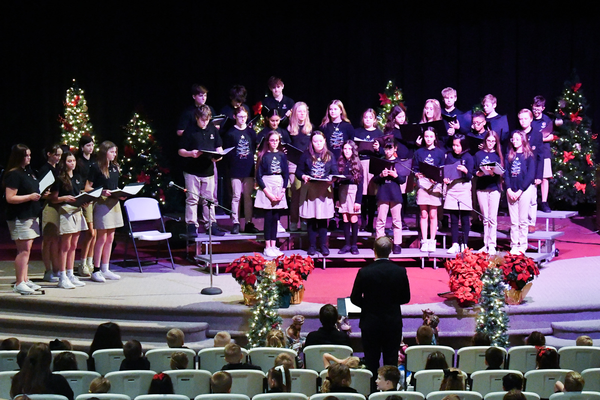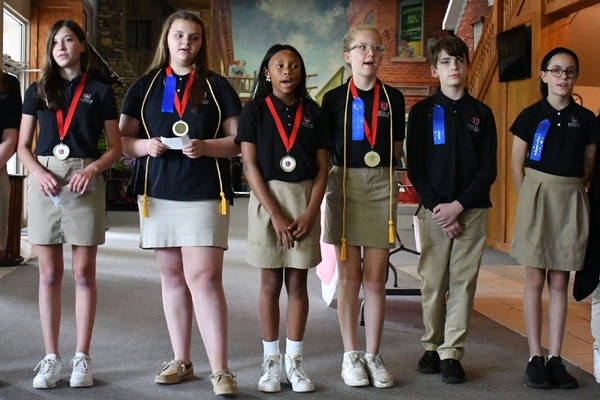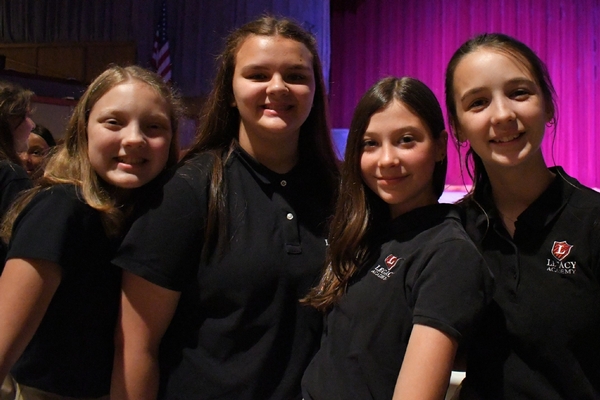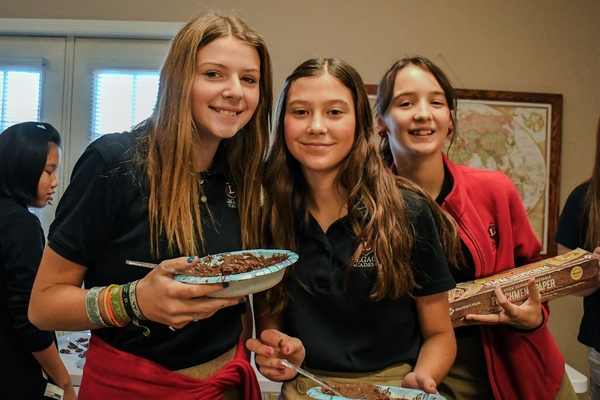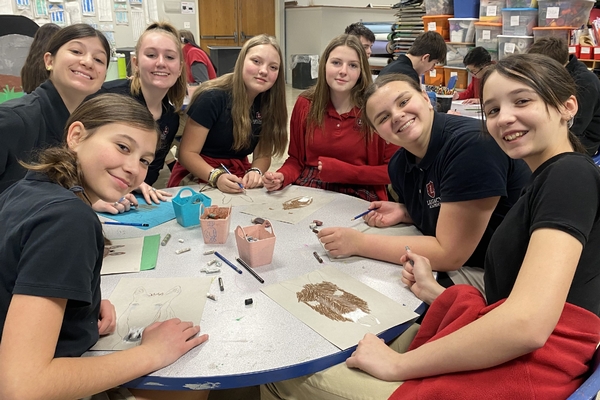

Middle schoolers hunger to understand the world around them and to find their own place in it.
We encourage this growing independence through classrooms that introduce analytical skills, foster responsibility, and build relationships.
Middle School Grades 6-8
Legacy Academy middle school consists of grades 6 to 8. This stage of the Trivium can be described in terms of its pedagogy (teaching methods), curriculum, and culture. During the Logic School years, the teaching method shifts from singing and chants to discussion, debate, and argument. Students continue to make use of the “tool” of singing and chanting, but the over-riding emphasis becomes argument and debate. Students are taught socratically, with a good bit of give and take (dialectic) between teacher and students. Logic is introduced as a central or “paradigm” subject, which is integrated into almost every other class students take. Special emphasis is given to the study and detection of logical fallacies.
CURRICULUM
Logic has a central place in the curriculum in that it is a subject and skill that is applied and used in virtually every other class. For example, students in history, literature or science classes will be required to think logically about the content they study and to expose any fallacies they detect in texts, presentations and classmates (respectfully of course). Their writing in these classes will be assessed for their logical sharpness, and examinations will also presuppose and exercise logical skill. Students study the various types of logic including informal logic, categorical and symbolic logic. While these designations sound intimidating, they are learned well by adolescent students generally inclined to…argue. In addition to logic, students in the Logic School also study traditional subjects like science, history, math and literature. Music and art are also part of the Logic curriculum. Middle schoolers at Legacy receive instruction in:
- Formal Logic
- History (6th: Medieval and American Facts & Figures; 7th: Renaissance; 8th: Modern)
- Literature linked to historical periods
- Science with Scientific Methodology (6th: Earth Science; 7th: Chemistry; 8th: Physics)
- Composition, including research papers
- Math (6th: Math 7/6 or Algebra ½; 7th: Algebra ½ or 1; 8th: Algebra 1 or Geometry)
- Bible: World Religions and Worldviews Survey, New Testament
- Latin
- Drama, Fine Arts and Vocal Music
- Study Skills
CULTURE
Like the Grammar School, the culture of the Logic School is one of order, peace, courtesy, and enthusiasm. Students in the Logic School, however, are encouraged to debate and challenge one another in a socratic, energetic, yet respectful manner. In these classes, in the midst of discussion and debate, students do not always raise their hands to speak, but learn to wait their turn and inject their comments and questions in an appropriate fashion. Debate and discussion guidelines are given and monitored by our Logic teachers.

